Does Cannabis Cause or Treat Anxiety?
Table of Contents
Anxiety is a common mental health condition that affects millions of people worldwide. While several conventional treatments are available, such as cognitive-behavioral therapy and prescription medications, many people have turned to cannabis as an alternative option for managing their symptoms.
However, the relationship between cannabis and anxiety is complex and multifaceted.
As more states legalize cannabis for medicinal and recreational purposes, more people increasingly turn to it to treat anxiety and Generalized Anxiety Disorder (GAD).
According to some research from the University of Washington, cannabis consumption can cause anxiety symptoms. However, those same studies suggest that, when used carefully, cannabis can help with anxiety symptoms.
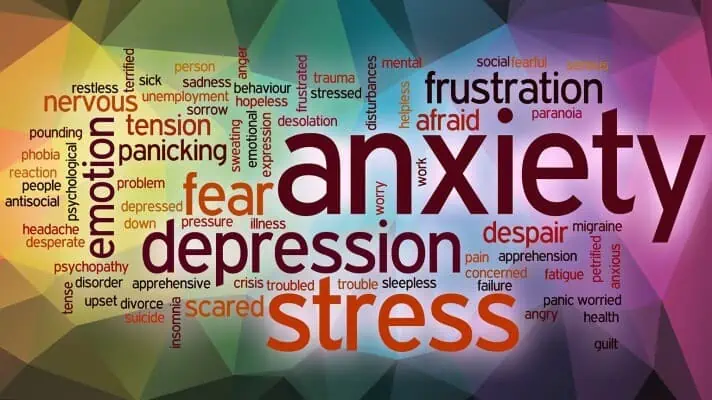
What is Anxiety?
Anxiety is a worry, tension, uneasiness, or fear associated with a particular event or scenario. An elevated heartbeat or perspiration are common physical symptoms in people with anxiety.
It is a common reaction to stress or stressful conditions. People may develop an anxiety disorder if they experience excessive anxiety, which becomes a persistent condition.
Cannabis contains delta-9-tetrahydrocannabinol (THC), which is responsible for its psychoactive effects.
As described earlier, THC can cause various physical and psychological effects, including anxiety and paranoia, particularly in higher doses.
Anxiety symptoms include:
- worried feelings
- irritability
- restlessness
- a feeling of being on the verge
- sleeping problems
- concentration problems
Anxiety manifests itself physically in a variety of ways.
- faster heartbeat
- breathing problems
- nausea
- sweating
- a sense of weakness
- stomach ache
- dizziness
- flashes of heat
What is Cannabis and the Role of THC in Anxiety Symptoms?
Cannabis sativa is a plant whose flower, leaves, and even seed oil are used for recreational and therapeutic purposes. The most abundant and well-known active components and chemicals in cannabis are cannabidiol (CBD) and delta-9-tetrahydrocannabinol (THC).
To summarize, THC is the psychoactive ingredient in cannabis that causes the “high” feeling.
CBD is a non-psychoactive chemical with various therapeutic applications and doesn’t cause a “high” feeling.
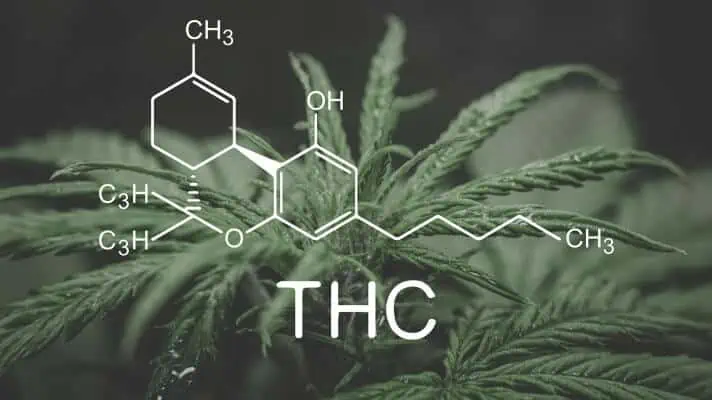

When used recreationally, cannabis can cause a range of feelings, including:
- relaxation
- elation or euphoria
- alterations in the perception of color, taste, sound, time, or space
- an increase in appetite when used recreationally
Apart from the recreational effects, CBD and THC may have a number of medicinal benefits, including the treatment of anxiety.
But the issue is that, while cannabis usage is becoming increasingly mainstream, less is known about its usefulness for specific medical ailments and its long-term implications.
Moreover, the type of cannabis strain consumed can also affect the experience. Sativa strains, typically higher in THC, can cause more anxiety symptoms than Indica strains, which are usually higher in cannabidiol (CBD) or Cannabinol (CBN) and have more calming and sedating effects.
Related Reading
- What Is Titration? Benefits, Tips and How To Do It RightCannabis use can have very effects on different people. Self-titration might be a useful technique to guide you in determining your ideal dosage.
The Therapeutic Potential of CBD for Anxiety Treatment
There aren’t many human clinical trials examining cannabis as an anxiety therapy. Nevertheless, a growing body of evidence — from research on animals to surveys of patients — indicates that cannabis may help.
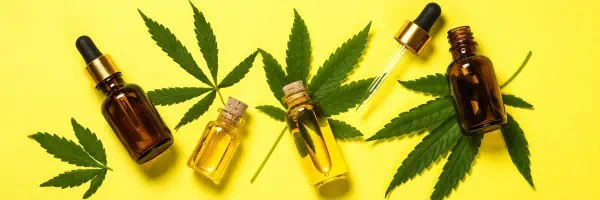
CBD oil was found to improve anxiety symptoms in patients with social anxiety disorder in a 2010 study. Participants’ brains were scanned, and it was discovered that CBD oil caused alterations in blood flow to areas of the brain connected to anxiety.
This data implies that CBD oil can aid in the treatment of anxiety.
According to a 2015 analysis, CBD oil may potentially help with a variety of anxiety conditions, including:
- Post-traumatic Stress Disorder (PTSD)
- Generalized Anxiety Disorder (GAD)
- Obsessive-compulsive Disorder (OCD)
- Social Anxiety Disorder
However, most previously-conducted studies about cannabis only used animal models. These preclinical and human findings have largely focused only on acute CBD doses in healthy participants.
More research is needed to see if it has similar effects in clinical groups.
Overall, this analysis highlights the potential use of CBD in treating anxiety and the need for further research.
A 2018 study looked at the effectiveness of cannabis in treating depression and anxiety. According to the findings of this study, medical cannabis users report a considerable reduction in negative affect symptoms quickly after consuming cannabis.
Interestingly, while acute cannabis intoxication seems to temporarily reduce sadness, anxiety, and stress, repeated use does not seem to result in a long-term improvement of symptoms and can sometimes worsen depression over time.
The Complex Relationship Between Cannabis and Anxiety
Even if cannabis restrictions were abolished in most states and researchers could utilize cannabis in their research, there would be another issue.
Anxiety issues and cannabis responses are both highly personal. As a result, cannabis may benefit one person with anxiety but not another.

Someone with symptoms of generalized anxiety disorder, such as problems sleeping, may adapt positively to cannabis use, whereas someone with panic disorder, afraid of losing control, may not.
The effectiveness of medical cannabis in treating neurological diseases was investigated in a 2014 study.
According to the findings, some patients who took the cannabis medicine experienced anxiety as a side effect, which points to a relationship between anxiety and greater THC levels.
The study also encouraged further research by stating that cannabinoids should be examined like other treatments to establish their efficacy and prescribed like other drugs once evidence is available.
As more states legalize and decriminalize cannabis, it should inspire researchers to keep looking for explanations about the benefits of cannabis use in patients with neurological illnesses.
However, it is essential to note that the efficacy of cannabis for treating anxiety can vary depending on the individual and the type of anxiety disorder. It is always best to consult a healthcare professional before using cannabis to treat anxiety.
Consult with a Healthcare Professional Before Using Cannabis for Anxiety Management
When confronted with something dangerous, remember that some worry is normal and beneficial. When anxiety becomes prevalent and challenging to manage, seeking professional treatment and discussing various options is vital.
Prescription Medication
Medical professionals recommend those with anxiety use prescribed medication for cannabis since the long-term dangers have been well-studied and may be less severe than those associated with long-term cannabis use.
Some antianxiety drugs are taken regularly, while others are taken just when intense anxiety or a panic attack strikes.
A psychiatrist or primary care physician can prescribe an antianxiety drug if needed.
Therapy
Work with your doctor to design the best treatment plan for you. Cognitive behavioral therapy (CBT) and other forms of therapy can help you uncover the underlying reason for your anxiety and help you manage it more successfully.
Proactive coping skills — learned through counseling, support groups, self-help books, and instructional websites — can help people make long-term changes without the harmful effects of cannabis usage.
CBD Oil
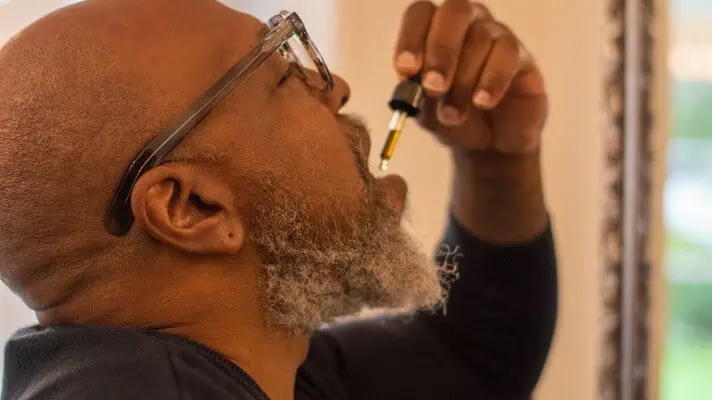
CBD oil does not contain THC or provide the same mind-altering effects as cannabis. There is preliminary evidence that CBD may be beneficial in treating anxiety and addiction, but additional clinical studies are needed.
The Bottom Line: Cannabis Can Both Cause and Treat Anxiety, Depending on the Individual and Strain
Cannabis — particularly CBD and low doses of THC — has been shown to reduce anxiety symptoms momentarily. If you decide to try cannabis, remember that it can make some people anxious.
Knowing how it will impact you is impossible unless you try it. Taking it cautiously and in tiny amounts is advisable, especially when starting out.
There is little research on how cannabis affects anxiety symptoms such as irritability, muscle tightness, and excessive worrying.
It may potentially cause anxiousness in certain people. Cannabis may relieve anxiety in some people, but this does not guarantee it is a safe or adequate medication.
Anxiety symptoms can be managed. Psychotherapy and medication have been successful for most people, but the long-term implications of self-medicating with cannabis have yet to be determined.
Tell your doctor if you’ve just started experimenting with cannabis to help your anxiety.
Have Anxiety? You May Qualify for a Medical Cannabis Card!
Enjoyed This Content? Read More:
-
How to Make Cannabis-Infused Coconut Oil or MCT Oil: Crockpot Recipes
In this guide, you’ll learn how to make cannabis-infused coconut oil or MCT oil, decarboxylate cannabis, or choose to infuse cannabis into any oil of your choice.
-
How to Make THC Gummy Bears with Canna Oil
This is a great no-fail recipe for beginners. The corn syrup in this recipe will help your gummy bears have that nice and chewy texture we’ve all come to love.
-
What Is Cannabis Oil? Uses, Benefits, and How to Choose the Best One
Learn about the different characteristics, applications, and types of cannabis oil. Find the right kind of cannabis oil for you and enjoy its health benefits.
-
What is Live Resin? Benefits, Uses, and How It Compares to Other Cannabis Extracts
Discover live resin, a flavorful cannabis concentrate made from fresh cannabis plants. Explore its benefits, uses, and how it compares to other extracts.
-
What is Live Rosin? A Detailed Guide to this Premium Cannabis Extract
Live rosin is becoming increasingly popular among cannabis enthusiasts for its unique qualities and extraction process. This guide delves into the intricacies of live rosin, distinguishing it from other cannabis concentrates like live resin and traditional rosin. Understanding live rosin not only enhances your cannabis experience but also guides your choices when selecting products from…


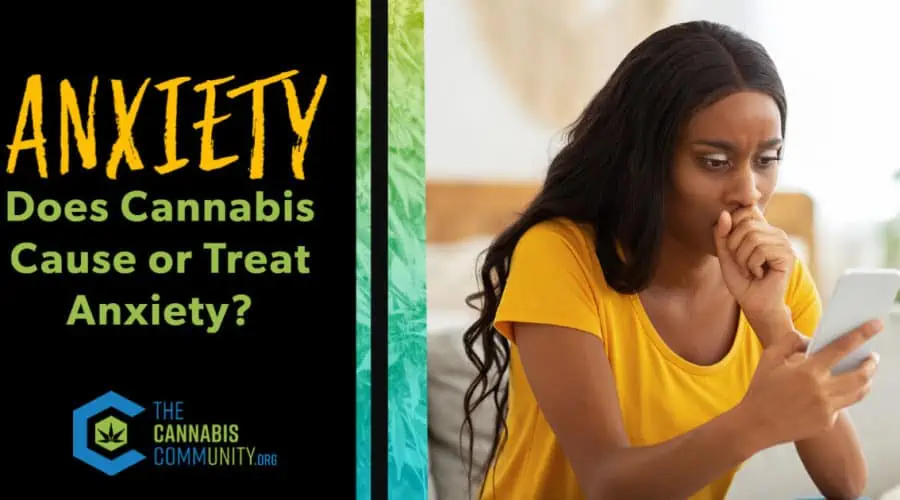

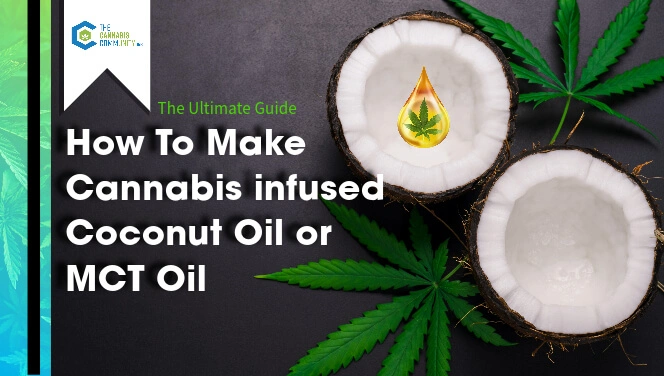
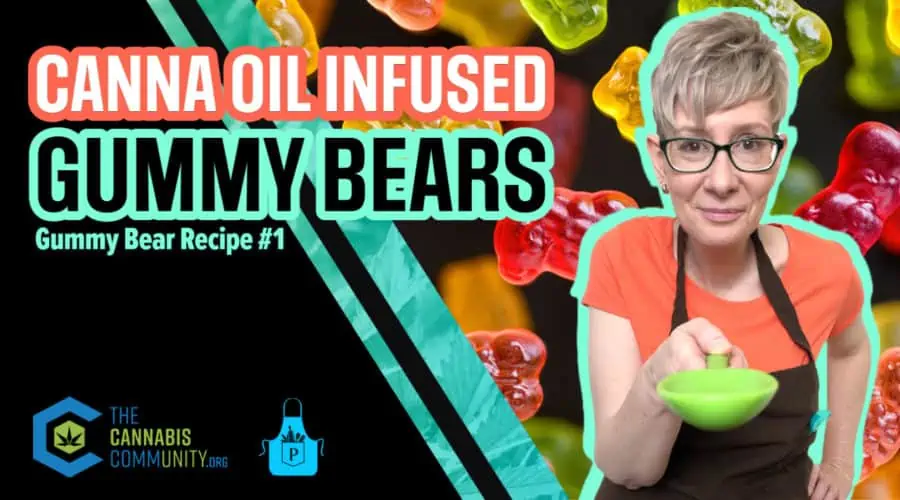

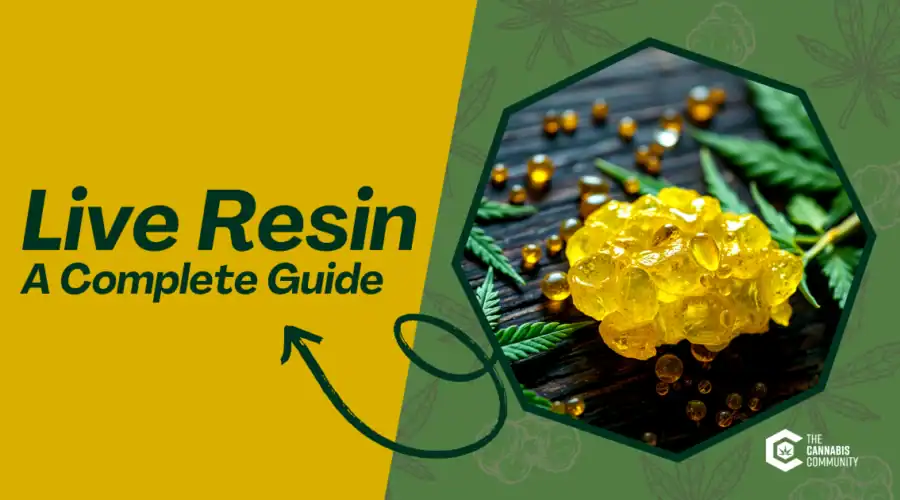
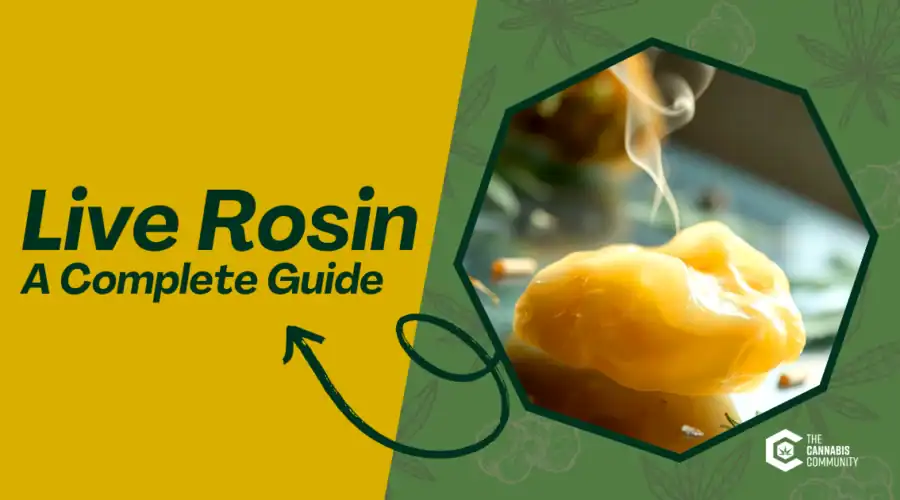
Pingback: Does Cannabis Cause Or Treat Anxiety? - ccybrokers.com
Pingback: The Ganja Guru
Pingback: Does Cannabis Cause Or Treat Anxiety? - News Portal by AfricaX